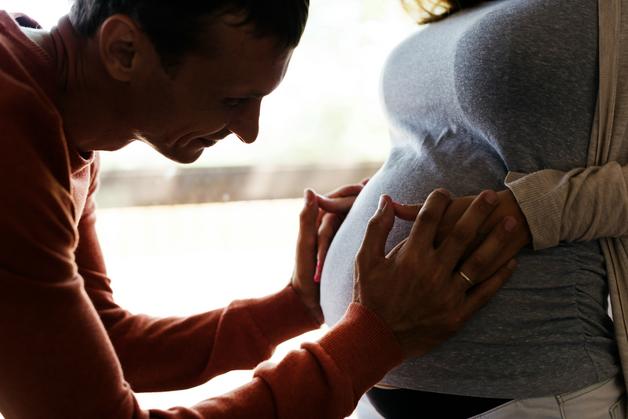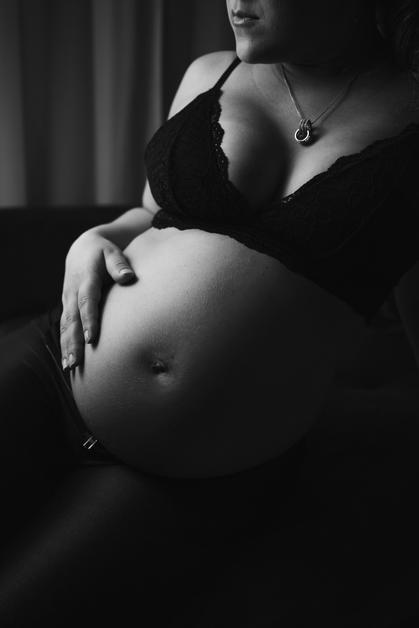When “kidney pain during pregnancy” enters your daily life, worry might be the first companion. Sharp twinges along the lower back, the mysterious ache that settles on one side, or even subtle throbs that radiate towards the belly or groin—such sensations can jolt expectant parents out of their comfort. What if this is not just the normal back pain of pregnancy? What if it persists or brings along fever, urinary problems, or a sense of deep fatigue? The boundaries between “common back pain” and something more serious occasionally blur, leaving questions and a restless mind. Here, let’s shed light on these shadows: practical prevention, home care, warning signs, and the vital importance of timely medical advice. From deciphering the signals to building habits that protect both mother and baby, the journey becomes about awareness, responsibility, and reassurance.
How to Recognise and Respond to Kidney Pain During Pregnancy
Kidney pain during pregnancy puzzles many parents. It is not the dull ache after a long day’s work or the soreness from changing posture. Rather, it often feels high on the back, closer to the ribs than the tailbone. Sometimes it comes suddenly—sharp, stabbing, or colicky. Sometimes it lingers, throbbing or burning. It might radiate toward the groin or even settle deeply in the lower abdomen or along the genital area.
So how is one to tell the difference? While ordinary muscle pain changes if you shift position, true kidney pain during pregnancy ignores movement and won’t let up even if you rest. If you notice symptoms like fever, chills, nausea, or difficulty urinating, or if the urine appears dark, cloudy, or has a bad smell, pay attention—such signs raise suspicion for infection or underlying kidney issues.
What then? Don’t wait. Contact your healthcare provider immediately. They will perform a careful examination, check urine for infection (urinalysis and culture), assess kidney function with blood tests, and typically order an ultrasound—a safe imaging method during pregnancy. Early treatment is not just a medical recommendation but a tangible safeguard against complications like pyelonephritis (kidney infection) or even risks to the baby such as premature delivery or slowed growth.
Myths linger. Some imagine all back pain is harmless or that painkillers like ibuprofen are always permitted—actually, certain drugs must be avoided, especially after the second trimester. And while some believe kidney pain only matters for the mother, the baby’s health can also be impacted by urinary tract infections or kidney complications. In pregnancy, vigilance protects two lives.
Causes and Risk Factors: Why Does Kidney Pain During Pregnancy Happen?
What sets the stage for kidney pain during pregnancy? Four main pathways often converge:
- Mechanical Compression: As the uterus expands, it pushes against the urinary tract. This slows urine flow, making infections or hydronephrosis (kidney swelling from backlogged urine, often on the right side) more likely.
- Urinary Tract Infection (UTI): Pregnancy wonderfully prepares the body for new life, but it also relaxes the urinary tract, leading bacteria to travel more easily. Symptoms such as fever, strong-smelling or cloudy urine, back pain, and frequent urge to urinate signal potential infection.
- Kidney Stones: Calcium metabolism changes, dehydration, and slow-moving urine combine to encourage stone formation. The passage of a stone? Intense, unrelenting pain, usually with nausea or vomiting.
- Other Factors: Sometimes kidney cysts, blood clots, or even an old trauma resurface during pregnancy. Any of these demands professional evaluation.
Several risk amplifiers are well-known: prior kidney stones, existing diabetes, history of urinary tract infections, ongoing kidney disease, or even just not drinking enough water. Poor nutrition, excess weight, and a sedentary routine all add to the risk. Sharing your medical history, no matter how distant, allows your doctor to create safer preventive plans.
Symptom Spotlight: Recognising The Warning Signs
“Kidney pain during pregnancy”—is it always severe? Sometimes it is a deep, one-sided ache in the back, just under the ribcage, and sometimes it radiates forward to the tummy or downward towards the groin. What elevates concern?
Look for:
- Persistent fever or chills
- Difficult, urgent, or burning urination
- Blood visible in the urine (hematuria)
- Frequent nausea or vomiting
- Swelling of the legs, eyes, or hands
- Extreme weakness
- Noticeable tenderness over the kidney region
- Foul odor or cloudy color in urine
Still uncertain? Try this quick differentiation: muscle pain is usually broad, worsens with movement, and eases with rest. Kidney pain, in contrast, stays put regardless of movement and often brings along other symptoms, especially with urination or fever.
If any of these symptoms enter the scene—especially if pain is unrelenting or fever joins—do not delay; rapid medical assessment is a must.
Diagnosis: What to Expect from Medical Evaluation
When “kidney pain during pregnancy” is reported, your practitioner progresses step by step: a thorough history, close inspection of symptoms, and hands-on examination. Modern laboratory and imaging resources offer definitive answers:
- Urine analysis: Checks for signs of infection (white blood cells, nitrites), blood, or crystals.
- Urine culture: Identifies specific bacteria for targeted treatment.
- Blood tests: Measure kidney function and look for signs of systemic infection.
- Ultrasound: The safe, preferred imaging to spot stones, swelling, or anatomical differences.
- Rarely, MRI: If clearer visualization is needed.
Radiation-based scans (X-ray or CT) are usually avoided to shield the developing baby. Every test is selected with safety and diagnostic value in mind.
Treatment—Protecting Mother and Baby
Once the diagnosis is clear, action follows—always with the health of both mother and baby at the centre!
- Antibiotics: UTIs or kidney infections demand pregnancy-safe antibiotics such as amoxicillin or cephalosporin. In severe cases like pyelonephritis, hospital care and intravenous drugs are needed.
- For stones: Most will pass naturally. Pain relief with paracetamol (never ibuprofen unless specifically advised), plenty of fluids, and adjusting the diet—less salt, tailored calcium—are first steps. If stones block the urinary tract or cause infection, a minor surgery or temporary stent might be proposed.
- Hydronephrosis or blockages: Close observation, regular scans, and appropriate intervention as advised by specialists.
- Medication caution: Pregnant individuals should consult before taking any “over-the-counter” medicines. The safest approach: never self-medicate.
- Home care: Drink 1.5 to 2 litres (or as instructed), maintain personal hygiene, never delay urinating, and favour clothing that does not restrict or trap heat. Gentle exercise—such as brisk walking, swimming, or yoga—can help reduce strain on the lower back and support healthy circulation.
Simple supportive tricks: resting in a comfortable position (often left side), using a warm compress (not hot) for the back, and light massage if approved by your doctor—all add comfort with little risk.
Prevention: Building Everyday Habits
Why let small problems become large ones? Kidney pain during pregnancy can often be mitigated (or sometimes avoided) by introducing easy-to-follow routines:
- Keep a straight, well-supported posture; consider a maternity pillow if needed.
- Maintain steady hydration—1.5 to 2 litres a day, unless medical advice suggests otherwise.
- Practice ideal hygiene—wipe front to back, urinate after intimacy, and go to the toilet promptly.
- Choose hypoallergenic intimate care products and air-permeable clothing.
- Engage in gentle, regular physical activities—stretching, swimming, prenatal yoga—all help your back muscles adjust and encourage urinary drainage.
- Anticipate warning signs—fever, blood in urine, malaise—never ignore them.
- Stay regular with medical visits; urine tests during check-ups spot issues long before serious symptoms appear.
Monitoring and Ongoing Care: Supporting Maternal and Baby Health
Long-term reassurance comes from ongoing observation. Regular urine examinations, blood tests, kidney ultrasounds if warranted, and blood pressure monitoring form a safety net. For those with diabetes, chronic kidney problems, lupus, or hypertension—more frequent follow-ups and coordination with a nephrologist or obstetrician may be needed.
Problems detected early—whether swelling, declining kidney function, or infection—all have safer and more effective solutions when caught in time.
When Neglect Leads to Complications—Why Fast Action Matters
What if kidney pain during pregnancy is overlooked? Unfortunately, risks climb:
- Early or premature labour might occur, especially if severe infection (pyelonephritis) sets in.
- Baby’s growth can be stunted if placental blood supply is affected by ongoing kidney disease.
- Mothers face threats like acute kidney failure, blood infection (sepsis), and even worsening pregnancy conditions like pre-eclampsia.
- Long-term, untreated problems can lead to chronic kidney disease or persistent bladder infections—both during and after pregnancy.
Fortunately, with attention and medical guidance, these pitfalls are usually preventable.
Living With Kidney Pain During Pregnancy: Comfort, Coping, and Support
Physical discomfort is only one side. The emotional whirlwind—anxiety about the baby, fear about tests or medicines, worry about “what next?”—can be exhausting. Lean on your physician, but also consider talking to family, joining discussion groups, or reaching out to a health counsellor.
Every strategy counts: adequate rest, learning relaxation breathing, staying hydrated, and adhering to medical advice can make daily living more manageable. Preparing step by step for childbirth—especially if you have a kidney-related history—builds confidence and contributes to well-being.
Key Takeaways
- “Kidney pain during pregnancy” is not a symptom to brush aside. Seek help for persistent pain, especially if accompanied by fever, changes in urine colour, malaise, or swelling—these symptoms often point to underlying medical issues requiring immediate attention.
- Consistent habits—good posture, adequate hydration, personal hygiene, and appropriate physical activity—substantially lower risks for kidney problems in pregnancy.
- Early identification, regular check-ups, and open communication with healthcare teams safeguard both maternal and fetal health.
- Testing urine during routine check-ups offers fast clues to problems before they grow.
- Pregnancy is unique for every parent—awareness and prevention are reliable sources of peace.
- Professional support and timely interventions reduce the risk of major complications—there are always options.
- Download the application Heloa to receive personalised health tips, child health questionnaires, and extra reassurance whenever questions arise.
Questions Parents Ask
Can kidney pain during pregnancy harm my baby?
Kidney pain during pregnancy itself does not directly threaten the baby, but the underlying causes sometimes can. For example, untreated infections or severe kidney issues may raise risks for preterm delivery or lower birth weight. With prompt attention and evidence-based medical care, most parents and babies go on to experience healthy pregnancies and deliveries. Concerns should always be discussed with your healthcare provider.
What can I do at home to relieve mild kidney pain during pregnancy?
Several gentle methods may offer relief: rest in a position that eases the pain (often lying on your left side), keep yourself hydrated, and urinate regularly. A warm compress (make sure it’s not too hot) placed on the lower back sometimes soothes discomfort, but always confirm with your doctor before trying home remedies. If pain persists or grows stronger, or if new symptoms develop, a medical visit is best for you and your baby.
Is it normal to feel kidney pain after passing urine during pregnancy?
A little discomfort after urinating can be due to normal pregnancy changes, like the expanding uterus shifting organs. However, if pain is strong or recurring, especially with burning, blood in the urine, or fever, this may be a red flag for infection or another medical issue. Tracking symptoms and speaking to your healthcare provider ensures problems are found and managed quickly, so you can focus on a healthy pregnancy.








